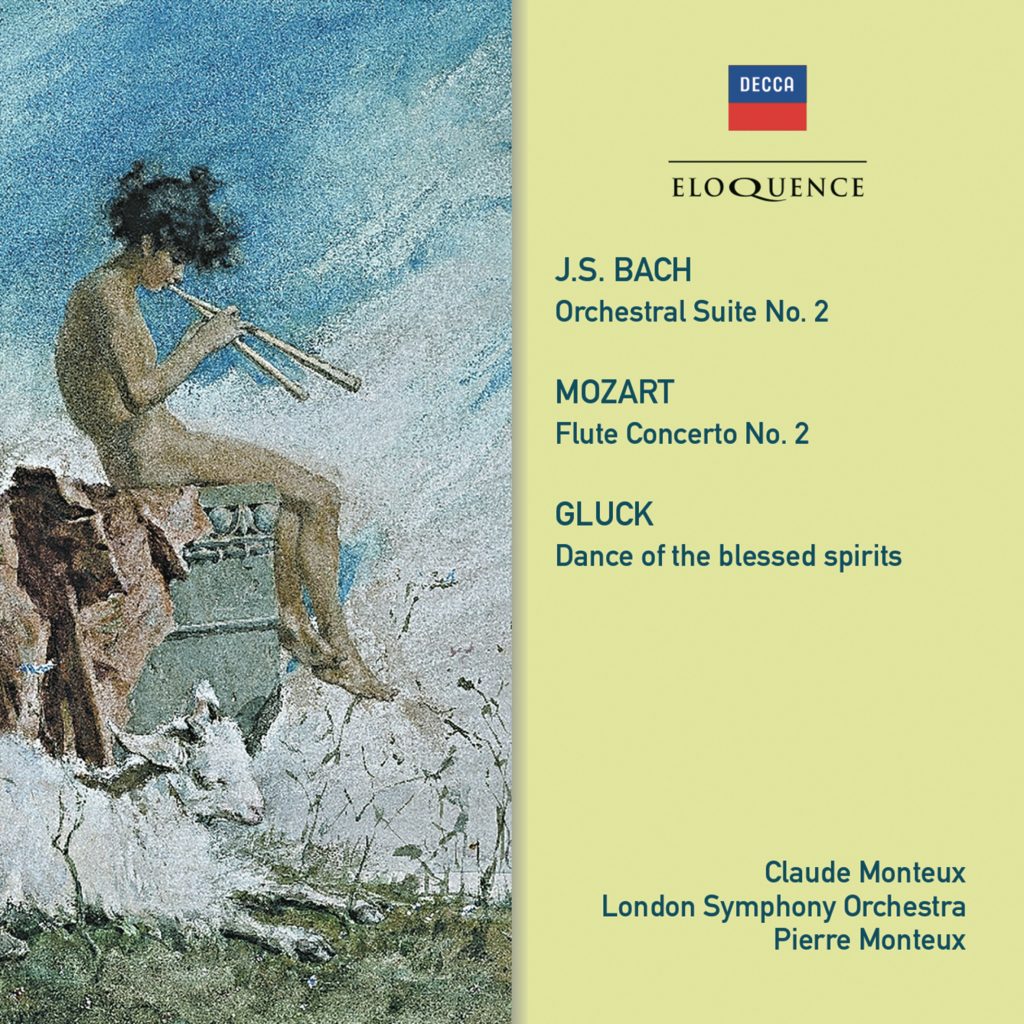All three works on this CD feature the flute and all feature Pierre Monteux collaborating with his son, Claude.
Bach composed some music for the recorder but it is outnumbered by his works for transverse flute which he called the ‘traversiere’. In his Orchestral Suite No. 2, Bach gave the ‘traversiere’ a starring role.
Although one of his greatest operas features that same instrument, Mozart made no secret of his dislike for the flute. Nevertheless, he composed two flute concertos and three flute quartets. When he set out to compose the second flute concerto, he perpetrated an act of wholesale self-borrowing: it was a reworking of the Oboe Concerto that he had composed less than a year earlier.
When Christoph Willibald Gluck premiered his opera, ‘Orfeo ed Euridice’, in 1762, he was not the first composer to set the legend to music nor was he the last. When the opera was revived in Paris in 1774, Gluck made several additions to the score, including the ‘Dance of the Blessed Spirits’ in the second scene of Act II. In this scene, Orpheus has made his way to the Elysian Fields and this peaceful music which includes an unforgettably lovely flute solo, depicts the blissful surroundings and the untroubled existence of the souls who dwell there.
Pierre Monteux often bemoaned the fact that he was associated with the French and Russian repertoires, to the exclusion of music from outside of those traditions. He could hardly help it; after all, it was Monteux who conducted the first and famously chaotic performance of Stravinsky’s ‘Le Sacre du printemps’ in 1913. Nevertheless, his recorded repertoire was broad although it seldom reached as far into the past as Bach. The recordings presented here were the only studio collaboration between father and son.
JOHANN SEBASTIAN BACH
Orchestral Suite No. 2 in B minor, BWV 1067
CHRISTOPH WILLIBALD GLUCK
Dance of the blessed spirits (from Orfeo ed Euridice)
WOLFGANG AMADEUS MOZART
Flute Concerto No. 2 in D major, KV 314
Claude Monteux, flute
London Symphony Orchestra
Pierre Monteux
Recording Producer: Christopher Raeburn
Balance Engineer: Kenneth Wilkinson
Recording Location: Decca Studio 3, West Hampstead, London, UK, 3, 4, 7, 8 November 1963
‘[Claude Monteux’s] tone is clear and cool, his technique impeccable, his style admirably Mozartian, and in choosing his own cadenzas to play he chose right: these are at once the most idiomatic and the most effective of all those at present on offer on disc. The LSO accompany admirably and the balance between soloist and orchestra is ideal. … The playing [of the Bach] is musicianly.’ Gramophone

